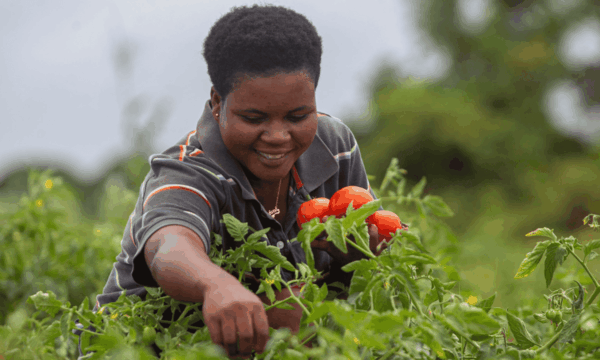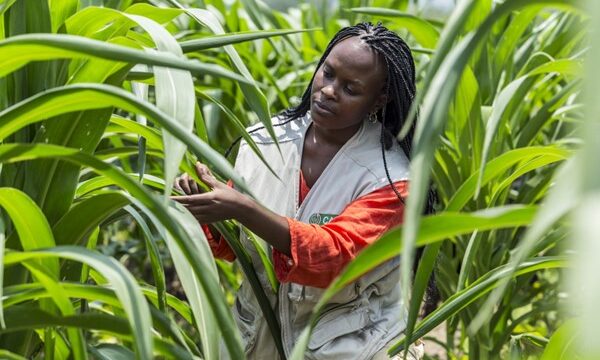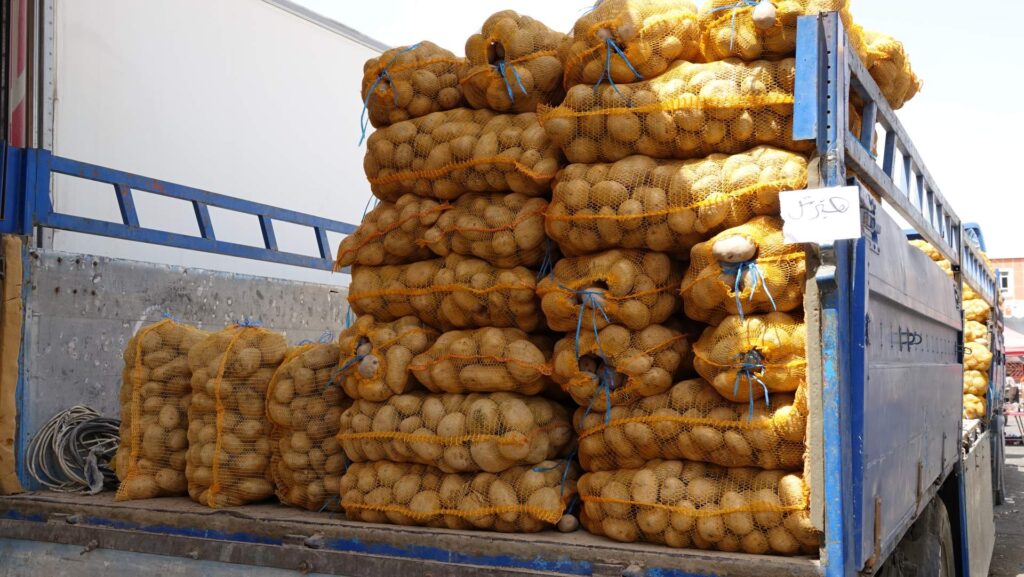
On 30th May, we marked the International Day of Potato. In this blog, CABI’s Crop Health Advisor Anna Wood provides an update on a five-year project led by CABI to strengthen the potato value chain in the Kurdistan Region of Iraq.
An ambitious five-year project led by CABI to strengthen the potato value chain in the Kurdistan Region of Iraq (KRI) is making timely progress towards its goal of meeting demand for locally produced and processed potato products.
The project ‘Value chain development for potato and processing in Kurdistan Region Iraq’ is being implemented in the Duhok Province of KRI through a public-private partnership funded by the Netherlands Enterprise Agency (RVO) with co-finance from the Kurdistan-based company Kurdistan Holland (KH).
Its implementing partners, in addition to KH, include the Directorate of Agriculture (DoA), part of the Ministry of Agriculture and Water Resources in Kurdistan Region, University of Duhok, and the Dutch-based global market leader in potato breeding and trading HZPC.
The public-private partnership is working to achieve an increased and more resilient income for farmers and a sustainable, locally sourced value chain that supplies the regional market and contributes to local economic development.
Since the project’s inception phase in 2021, the project has continued to progress to achieve its impressive objectives.
An efficient, high-specification potato cold storage unit has been operating since 2023, storing 10,000 tonnes of harvested potatoes in 2024. The storage unit is also used to maintain high-quality seed potato imported from Holland before it is distributed to farmers.
Providing farmers with high-quality seed potato varieties and training
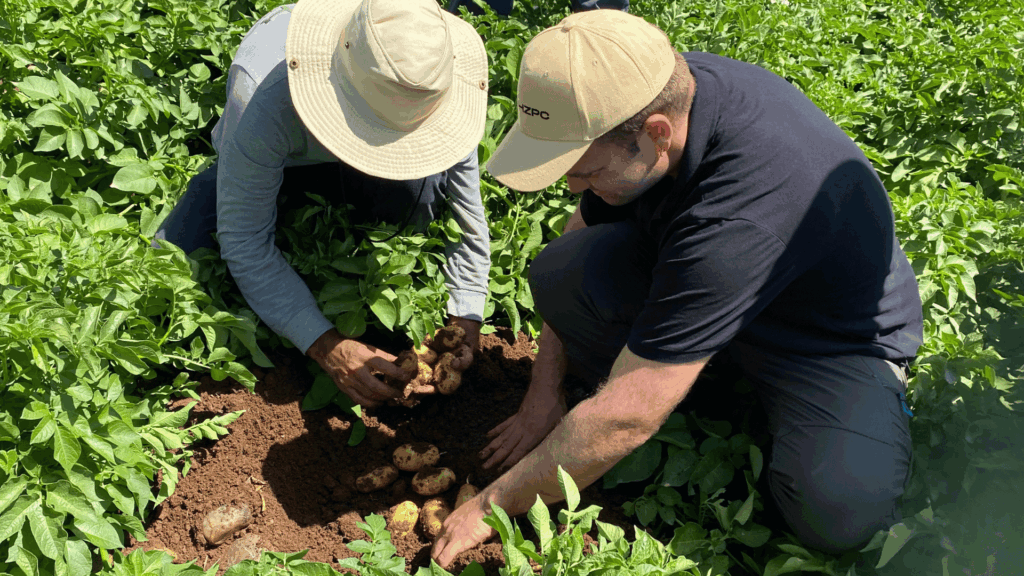
The project also aims to ensure that farmers continue to be provided with high-quality seed potato varieties and training to ensure the potatoes produced meet the required quality standards. A bespoke French-fry processing line purchased from the Netherlands is due to be established in 2025.
Health and safety training has been given to cold store personnel, while technical training has been provided to over 400 project stakeholders, including partner staff and extension agents. Topics included pest diagnosis, pest management, biological control, extension messaging, experimental design, monitoring and evaluation and survey techniques.
To ensure that the maximum number of farmers are reached with pest diagnosis and management advice, the project is extending training on these topics to agro-input dealers in Duhok as well as extension agents of the Directorate of Agriculture (DoA), part of the Ministry of Agriculture and Water Resources in Kurdistan Region, and KH agronomists.
Difficult to compete against imported goods
Insufficient investment in KRI’s agricultural sector has resulted in a growing dependency on imported low-quality food being offered at low prices to consumers.
Smallholder farmers, therefore, find it difficult to compete against imported goods, which results in small profit margins and an unwillingness to invest in technology and increased production.
Post-harvest losses are also substantial due to poor infrastructure, a lack of suitable storage facilities and the absence of processing facilities. Consequently, agriculture in KRI used to be a ‘low input/low output’ system.
Potato is a high-value crop, providing for an opportunity to change. Farmers used to face production challenges which the project is helping to address. For example, there still is a shortage of affordable potato seed of high quality and a lack of access to objective and professional extension advice. Pest management was not yet consistent with good agricultural practice requirements.
In addition, the absence of investments in research and diagnostic services hampers access to valuable knowledge that could help to overcome these challenges. The poor links between research and extension add further problems, which lead to unsustainable crop production.
Extension messages on pest management and Good Agricultural Practice
Dr Anna Wood, Project Manager and Crop Health Advisor at CABI, said, “The Department of Agriculture (DoA), as one of our partners, works well with CABI to develop extension messages on pest management and Good Agricultural Practice for farmers and create pest management decision guides.
“Content for mass extension campaigns via TV, radio and farmer rallies has also been drafted and will be introduced in due course. These capacity building activities will help to reach the targeted 8000 farmers.
“Knowledge sharing through study visits is an important component of this project, and training on potato quality inspection and seed potato production for KH staff continues to take place in the Netherlands to support this. DoA staff will also benefit from this training in 2025.”
She added that in June 2024, CABI’s centre in Délemont hosted 11 staff members from the University of Duhok (UoD) and the DoA during their visit to Switzerland. The centre introduced the visitors to innovative agriculture production techniques, integrated pest management approaches and extension models applied in Swiss agriculture.
Opportunities for investment in the potato value chain
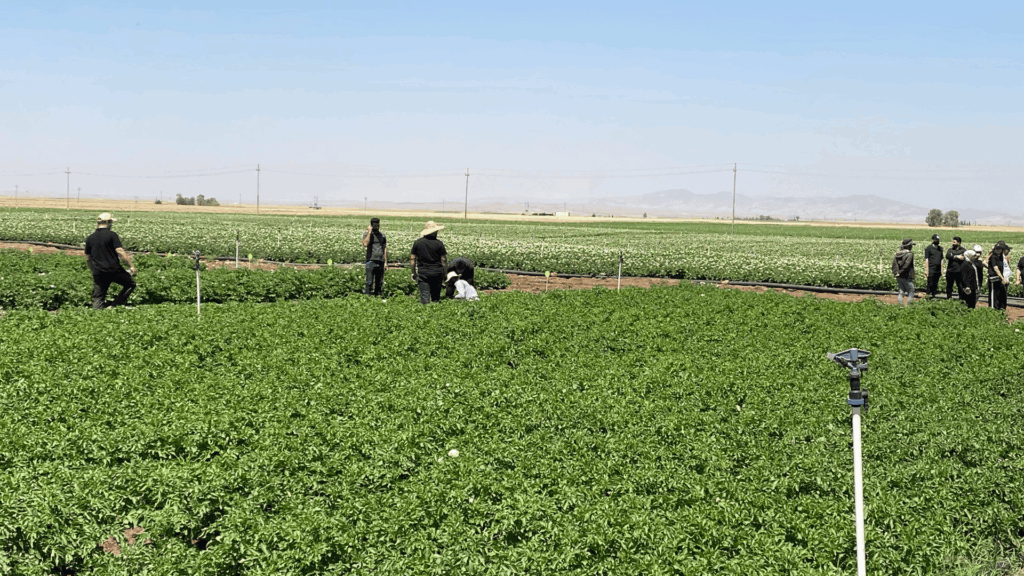
Furthermore, she said, over 300 value chain actors, including farmers, retailers and government employees, have attended workshops organized by project partners in KRI to raise awareness of recent agriculture developments and opportunities for investment in the potato value chain.
Three special studies are being conducted as part of the project. A comprehensive farmer baseline study has been completed and will be repeated in 2026 to assess impact.
A study on gender in the potato value chain has been completed, and data on labour practices in potato production is being analysed. UoD and DoA staff, with support from CABI, have conducted all three of these studies.
Exploring agricultural innovation in potato farming
In May 2025, CABI’s Janny Vos, Partnerships Development Director, and the Netherlands Enterprise Agency (RVO) visited the project to meet project partners and assess progress of the potato value chain development project. The project team and visitors discussed implementation outcomes, challenges, and future opportunities for expansion.
Among others, Prof Dawood S. Atrushi, President of the UoD, informed the delegation about their strategic commitment to agricultural sustainability and international collaboration.
He highlighted the project as a model for regional food security and innovation.
This recent meeting underscores the power of collaboration to drive innovation and advance sustainable agricultural development.
Additional information
Main image: Project to strengthen the potato value chain in the Kurdistan Region of Iraq is making timely progress (credit: CABI).
Project page
Find out more about the project here: ‘Strengthening the potato value chain in the Kurdistan Region of Iraq’.
Relevant stories
‘Public-private partnership to unlock potato sector potential in the Kurdistan Region of Iraq.’
‘Potato value chain project featured on Duhok TV.’
University of Duhok Hosts Delegation from RVO and CABI to Explore Agricultural Innovation
Related News & Blogs
Discover Imperial’s master’s on sustainable agriculture, supported by CABI
Credit: CABI Around 828 million people still face hunger, and 3.1 billion cannot afford a healthy diet. Without transforming how food is produced and consumed, the world risks missing Sustainable Development Goal 2 , ending hunger and promoting sustain…
17 February 2026


